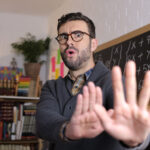One of 2015’s big education stories has been the very small schools that have been popping up around the country as part of the AltSchool network.
According to my Twitter feed, I’ve come across several articles (WIRED, Business Insider, NPR, TechChrunch, New Yorker, NYT, etc.) over the past year.
The model has also been featured on CBS This Morning:
Click here if the video doesn’t load properly.
Just a few days ago, the newest AltSchool (in Brooklyn) got some generally favorable attention from the NYT’s Ginia Bellafante:
“Founded by a young former Google executive, Max Ventilla, AltSchool is a product of the capitalist utopianism that drives Silicon Valley: the notion that smart people, or at any rate those supremely confident in newly held convictions, can make money making the world a better place.”
The last time I can recall this kind of glowing mainstream media coverage might be the late-2000’s hype surrounding Harlem Children’s Zone, or KIPP, or — dare I say it? — TFA.
And, after a year of mostly-glowing press coverage, Ventilla and the team at AltSchool have come to understand that the media attention is not without potential headaches.
“Frankly, I thought it was a little bit superficial,” said Ventilla about the NYT story, objecting in particular to a quote about foreign language instruction that he thought was taken out of context.
“Then again,” he adds. “It’s always nice to have something in the New York Times.”
On the phone, Ventilla comes off as the fast-talking, hyper-articulate type of person you might expect him to be. (Translation: sometimes I wasn’t sure I was following what he was saying, or if it made sense.)
But the energy and enthusiasm are hard not to like. He talks about making schools match up with what kids are likely to face in the future, rather than the present or the past. (For example, machines are probably going to be able to provide real-time language translation so foreign language instruction needs to be rethought to focus on brain development and cultural reasons.)
Some tidbits that might surprise you:
According to Ventilla, the school doesn’t track kids by race or ethnicity but 20-25 percent of kids are receiving some form of financial aid and 30-35 percent of them are getting as much or more than half off the tuition. This is much higher than most other private schools, he says.
Curriculum-wise, most of the software and content that’s being provided at AltSchool is off the shelf (Khan Academy, Rosetta Stone) rather than custom-made. The in-house apps for parents like the MyAltSchool app are adapted from software that’s already developed. Roughly a third of the folks working for AltSchools are tech/engineers.
Ventilla also points out that AltSchool doesn’t consider screentime an ideal way to teach kids, however convenient it may be. When it comes to onscreen learning, “the less the better.” Much more preferable is “relationship-driven real-world learning.” (Another geek favorite, “personalization,” is understandably appealing, but being small isn’t Ventilla’s ultimate goal. “It’s a shame that we wish we were Finland. We actually want to be as big as possible.”)
As to the challenges of communicating the AltSchool idea to journalists and the public, Ventilla has come to understand the many challenges. “It’s very very hard to take what is a complicated approach and try to make it clear to a journalist who then has to make it clear to their audience,” says Ventilla. “I tend to be pretty thrilled with press that conveys the fact that this is hard, that these are problems with many angles, and that AltSchool isn’t a binary question.”
It’s a “silly exercise” to write AltSchool off because it’s private — or to hype it as the future of education.
About this, I hope we can all agree.
Related posts: AltSchool, Media Hype, & the Dilemma of Innovation Stories.
ABOUT THE AUTHOR

Alexander Russo
Alexander Russo is founder and editor of The Grade, an award-winning effort to help improve media coverage of education issues. He’s also a Spencer Education Journalism Fellowship winner and a book author. You can reach him at @alexanderrusso.
Visit their website at: https://the-grade.org/













